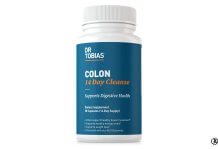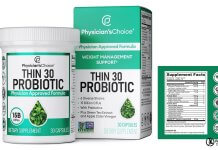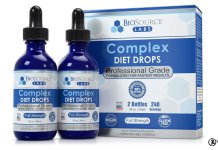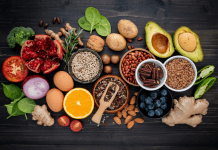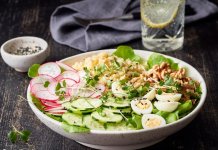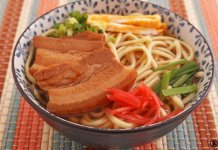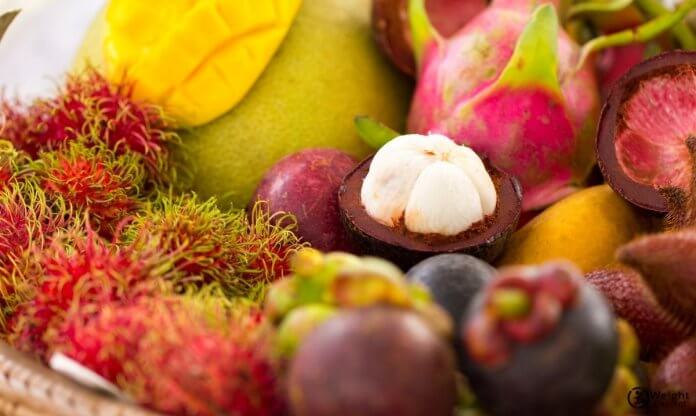I get commissions for purchases made through links on the site. As an Amazon and Clickbank Associate I earn from qualifying purchases. Learn more.
Estimated reading time: 4 minutes
Tropical fruits are colorful, tasty but high in sugar. Spring and summer season is the best to add tropical fruits into your diet. Nature has given us plenty of delicious fruits, and we could not be thankful for these treasures. Tropical fruits are exotic and have many health benefits—tropical fruits such as; kiwi, pineapple, banana, coconut and mangos. There are many tropical fruits and super tasty, so much flavour and health benefits at the same time.
Here in this article, we will discuss more tropical fruits in your diet.
Pineapple
Pineapple is a bright colour, juicy fruit containing vitamin C. Pineapple helps your digestion, inflammatory disease, and boost your metabolism. Pineapple is high sugar fruits that you should avoid. Fruits help you to relieve joint pains and arthritis and is helpful for recovery after your exercise. Pineapple adds to your smoothies, salad, oatmeal and raw dessert.
Pineapple Nutrition Facts
| Calories: 82.5 | Fat: 0.2g |
| Sodium: 1.7mg | Carbohydrates: 22g |
| Fiber: 2.3g | Sugars: 16.3g |
| Protein: 0.9g | Vitamin C: 79mg |
Mangoes
Mangoes are rich with vitamin A and C. Mangoes are eaten fresh and also include in the dessert. Mangoes help to act as an antioxidant in the body. Mangoes are sweet flavour and slightly soft. Mangoes make delicious smoothies and help to fight the colon, breast cancer. Mangoes are great for diabetes and improve eyesight, hairs and skin.
Mangoes Nutrition Facts
| Calories: 99 | Fat: 0.6g |
| Sodium: 2mg | Carbohydrates: 25g |
| Fiber: 2.6g | Sugars: 23g |
| Protein: 1.4g |
Coconut
Coconut is enriched with antioxidants, minerals, vitamins, and fibre. Coconut reduces the risk of heart disease and is a superfood. Coconut is called the ‘white meat’. Coconut fight with the bacteria in the body and have healthy fats and minerals present in it. You must add it to your diet.
Coconut Nutrition Facts
| Calories: 160 | Fat: 15g |
| Sodium: 9mg | Carbohydrates: 6.8g |
| Fiber: 4g | Sugars: 2.8g |
| Protein: 1.5g |
Avocado
Avocado is high in potassium, vitamin C, B and omega-3 fatty acid. Avocado is powerful nutrients that improve the heart disease, inflammation and balance the cholesterol. Avocado has good fat and can be eaten as a delicious thick milkshake.
Avocado Nutrition Facts
| Calories: 160 | Fat: 14.7g |
| Sodium: 7mg | Carbohydrates: 8.5g |
| Fiber: 6.7g | Sugars: 0.7g |
| Protein: 2g |
Star fruit
Star fruit is rich with vitamin C and has antioxidant properties. Star fruit is juicy sweet-sour in taste. Never eat star fruit without washing them. Start fruit is used for sore throat and cough. Star fruit contains minerals, potassium, zinc and iron. Star fruit has many health benefits that you should add it to your diet to stay healthy. Star fruit is a fresh colour tropical tasty fruit.
Star Fruit Nutrition Facts
| Calories: 41 | Fat: 0.4g |
| Sodium: 2.6mg | Carbohydrates: 8.9g |
| Fiber: 3.7g | Sugars: 5.3g |
| Protein: 1.4g |
Kiwi
Kiwi is moderate sugary and low calories fruit. Kiwi contains omega-3 fatty acid, and the skin of kiwi is rich with fibre. Kiwi has vitamin C present than oranges. Add kiwi into your salad bowl and make smoothies. Use different unique recipes to add them into your diet to enjoy the healthy benefits.
Kiwi Nutrition Facts
| Calories: 42 | Fat: 0.4g |
| Sodium: 2mg | Carbohydrates: 10.1g |
| Fiber: 2.1g | Sugars: 6.2g |
| Protein: 0.8g |
Papaya
Papaya is filled with water content and helps or hydrating skin. You can use papaya in your smoothies and even have better taste. Papaya seeds are beneficial to fight with cancer and liver improvement. Add papaya cubes in your smoothies to make them creamy and sweet even without adding artificial sugar. Papaya is ripe when their skin colour changes from yellowish to orange. Papayas are lovely and have health benefits that you add to your diet in spring or summer.
Papaya Nutrition Facts
| Calories: 62 | Fat: 0.4g |
| Sodium: 11.6mg | Carbohydrates: 16g |
| Fiber: 2.5g | Sugars: 11g |
| Protein: 0.7g |
- The Smoothie Diet: 21-day Program – The Smoothie Diet is a 3-week weight loss program. Even if the objective is to help users with a healthy and shaped body, you can expect a lot of other benefits
Conclusion
We have two seasons to enjoy fully; spring and summer. Tropical fruits are sweet, fresh and coloured fruit and have many health benefits. There are many other apple, oranges and other fruits available in the market that you like. You can buy these tasty fruits from the local market than are easy and sweet to eat. Tropical fruits have many health benefits that you must add to your diet. Eat healthy and fresh fruits to boost the immune system.











